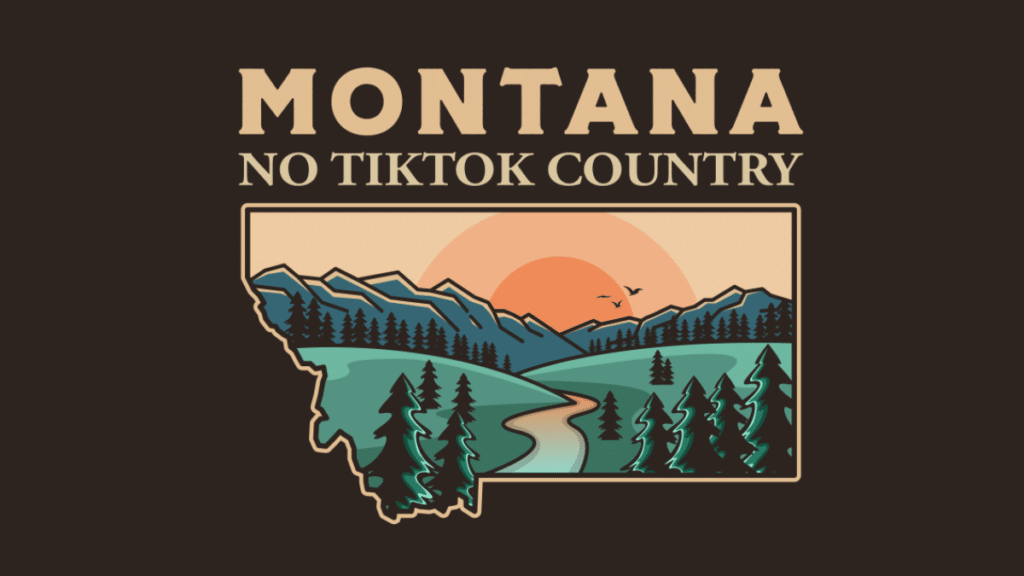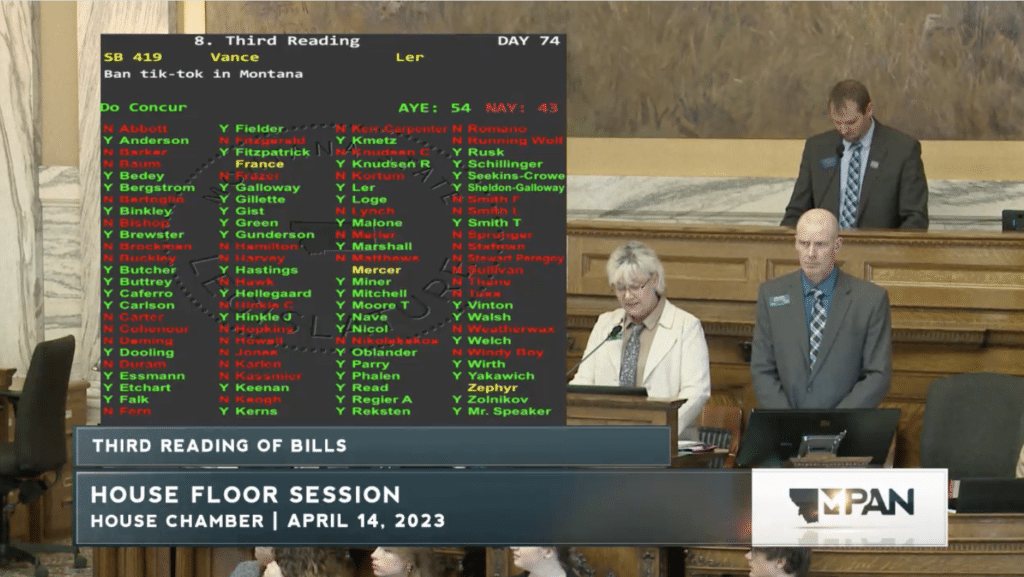First U.S. State TikTok Ban Heads to Montana Governor's Desk
John Perrino / Apr 15, 2023John Perrino is a policy analyst at the Stanford Internet Observatory.

The Montana state legislature passed a bill that effectively bans TikTok by prohibiting app store downloads and banning the company, which is owned by the Chinese firm ByteDance, from operating in the state.
The bill now heads to the desk of Republican Governor Greg Gianforte after a 54-43 House vote on Friday afternoon. Gianforte is expected to sign the legislation into law despite likely legal challenges. He previously banned TikTok on state government devices.
SB 419, titled “Banning TikTok in Montana,” would fine providers that make the app available for download in the state $10,000 each day they are in violation of the law. Otherwise set to go into effect on January 1, 2024, the legislation would be voided if TikTok is acquired by a U.S. company, or if a national ban is passed.

The Montana bill will face legal challenges before it is implemented. TikTok says the bill violates the First Amendment and that there is no practical means by which to implement it. Civil society groups including the ACLU, Electronic Frontier Foundation, the Center for Democracy and Technology, and TechFreedom issued a joint letter that says “SB 419 is censorship—it would unjustly cut Montanans off from a platform where they speak out and exchange ideas everyday, and it would set an alarming precedent for excessive government control over how Montanans use the internet.”
A national TikTok ban briefly gained momentum in the U.S. Congress, but ultimately fizzled out at the end of last month as lawmakers headed into spring recess. The Montana bill’s passage may signal a domino effect across other state legislatures and spur renewed calls for action at the federal level.
TikTok CEO Shou Zi Chew testified before the House Energy and Commerce Committee on March 24, where he faced intense bipartisan scrutiny. The five-hour grilling highlighted strong support for strict measures against the company, with many lawmakers supporting a TikTok ban. Lawmakers also called for measures to address online privacy and safety more generally during the hearing.
In the House, the focus on TikTok has renewed the push for a comprehensive national privacy law. The American Data Privacy and Protection Act (ADDPA) failed to pass last year despite broad support. Not all House members want to ban TikTok either, especially young Democrats with online followings.
Ahead of the spring recess, Sen. Rand Paul (R-KY) blocked an attempt by Sen. Josh Hawley (R-MO) to expedite his TikTok ban proposal through unanimous consent. Sen. Paul argued that the data collection and privacy risks posed by TikTok are also posed by U.S. social media companies and that a ban would mirror China’s approach to limiting free speech and access to foreign online services.
Earlier this month, Sens. John Thune (R-SD) and Mark Warner (D-VA) made a pitch for the RESTRICT Act in The Wall Street Journal, arguing the bill would withstand growing legal scrutiny. The RESTRICT Act would direct the Department of Commerce to identify and mitigate national security threats posed by technologies tied to foreign adversaries, covering many technology products and services in the United States, including TikTok. Critics in the Senate have argued the bill does not go far enough without outright banning TikTok, or that the bill poses Constitutional threats.
My boss, Stanford Internet Observatory Director Alex Stamos, argued last month that “Washington is correct to deal with the immediate risks posed by the single chess piece of TikTok, but it should also see the whole board and plan for the next 20 moves. The history of the rest of the 21st century depends on it.”
While many concerns with TikTok are valid, data privacy rules would help, and Congress has itself to blame for failing to pass such legislation. There are also likely First Amendment challenges to banning a single social media application without a clearly demonstrated national security threat.
The Washington Post’s Shira Ovide recently noted that “[i]f there’s a smoking gun that China’s government has used TikTok to harvest Americans’ data or warp our beliefs, U.S. officials need to make that evidence public.”
While Montana’s first in the nation ban seems unlikely to hold up, only time will tell if Congress takes action or a compromise is reached in shaky, years-long U.S. negotiations with TikTok.
Authors
